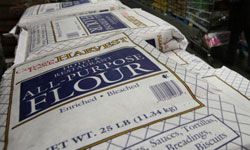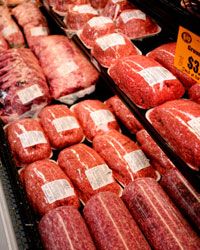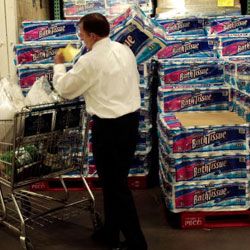One of the first rules of saving money at the grocery store is to buy big. Larger quantities equal less packaging and less waste, which means spending less money, right? That's true sometimes but not always. You can definitely save big by buying groceries in bulk, but you can also get burned.
When you're cruising the aisles of a warehouse club or supermarket, it's easy to get excited by a good deal. But if you jump on every amazing price you see, you could end up with a whole lot of something you don't really need -- or have room to store. Sure, you might save 10 bucks, but is it worth having a gallon vat of olive oil sitting in your living room for months on end? Bulk buying is an art, and it might take a little time to learn how to maximize your savings and actually use everything you buy.
Advertisement
And is it even worth the annual fee to join a warehouse club? Probably, if you'll go there more than a few times a year (or if you think you'll make a big purchase, like a HDTV or computer). But should you do all your shopping at Sam's, BJ's or Costco? Perhaps not, unless you have a lot of kids or are feeding a small army every day. Don't ignore your local grocery store -- you can also buy some things in bulk there, and you might get an even better deal.
Much of buying in bulk is based on personal tastes and what your family uses, but there are some tips that everyone can use. Here's our advice on how to buy groceries in bulk.


